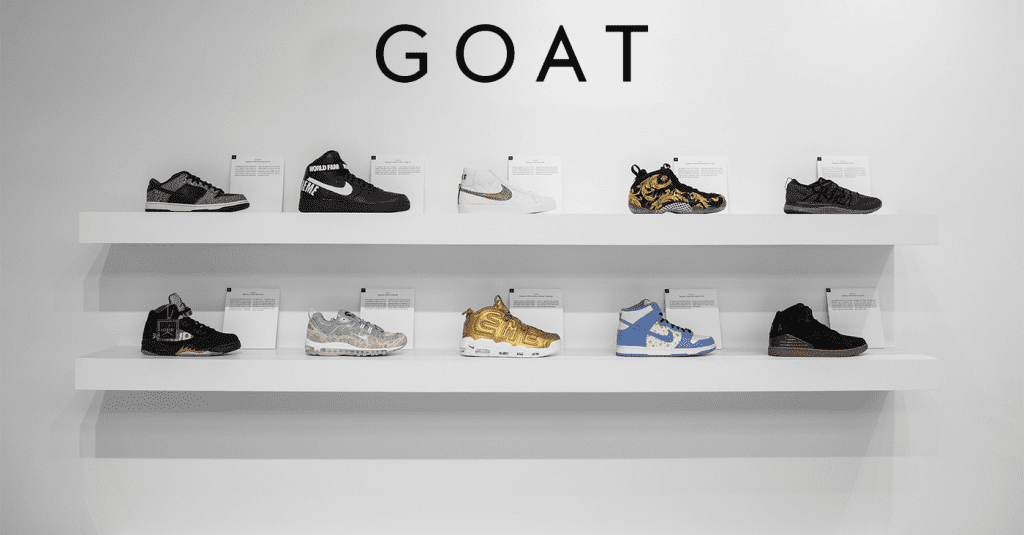The rise of Goat Group from niche app that provided sneaker enthusiasts with a place to buy and sell footwear to a burgeoning marketplace with a reported valuation of a whopping $1.75 billion has been striking. In just over a decade, the company has nabbed nearly $300 million in funding from the likes of Foot Locker and Reddit cofounder Alexis Ohanian, among others, and garnered itself the title of the world’s largest marketplace for authentic sneakers, while in the midst of expanding further to “apparel and accessories from select emerging and iconic brands.” But look beyond the steady rise of Goat Group, and the swiftly-growing company is in the midst of trying to fend off a high-stakes lawsuit that could force it back to the drawing board – at least in terms of its branding.
According to the lawsuit that it filed in a New York federal court in December 2019, London-based brand Goat Fashion claims that Goat Group’s corporate entity, 1661, Inc. is “willfully disregarding” its well-established intellectual property rights. The like-named parties squabble got its start several years ago when they entered into a consent agreement in April 2017.
Allegedly prompted by the U.S. Patent and Trademark Office (“USPTO”)’s unwillingness to register 1661, Inc.’s application for “GOAT” for use in connection with its sneaker marketplace (class 35), citing Goat Fashion’s pre-existing registrations for “GOAT.” (Goat Fashion maintains registrations with the USPTO for GOAT for use in class 25 and 35).
In furtherance of the consent agreement, which ultimately enabled 1661, Inc., to obtain the class 35 registration, 20-year old Goat Fashion would “continue to use its GOAT mark for goods and services related to clothing, and 1661, Inc. would limit its use of its GOAT mark to services in connection with its online marketplace … ‘athletic and sporting footwear,’ i.e., sneakers.”
While the agreement appeared to work out for the similarly-named companies for over a year, enabling them to peacefully co-exist in the market, Goat Fashion claims that in July 2019, things went awry after it refused to consent to 1661’s request to use the GOAT mark on clothing. Instead of agreeing to let 1661 use the mark free and clear, Goat Fashion alleges that it “offered to enter into a license agreement with 1661” to enable the company to use the GOAT trademark on clothing.
In response to its offer, Goat Fashion claims that 1661 – “rather than negotiating a license agreement” – opted to “willfully disregard [its] trademark rights and … the 2017 consent agreement,” and in October 2019, began selling its own GOAT branded clothes through its mobile app anyway.
Given the its consistent use of the GOAT mark on clothing since 2003, Goat Fashion set forth claims of trademark infringement and unfair competition. It argues that 1661, Inc.’s use of the same mark on its own collection of apparel is “likely to deceive the relevant consuming public into believing, mistakenly, that 1661’s clothing and related goods and services originate from, are associated or affiliated with, or otherwise authorized by Goat Fashion” when they are not.
More than that, it also accused 1661, Inc. of breach of contract, for violating their consent agreement, and asked the court to cancel one of 1661 Inc.’s GOAT trademark registrations (class 42), and award it monetary damages, as well as injunctive relief.
*The case is Goat Fashion Ltd. v. 1661, Inc., 1:19-cv-11045 (SDNY).











